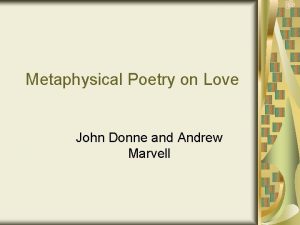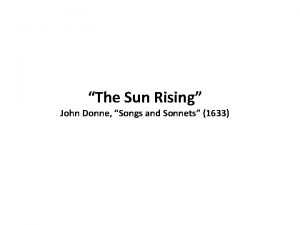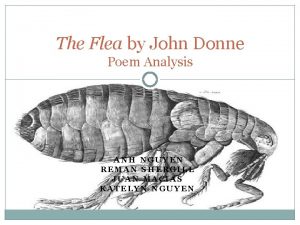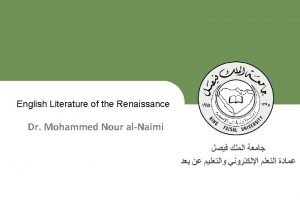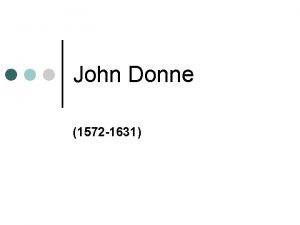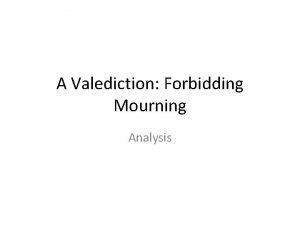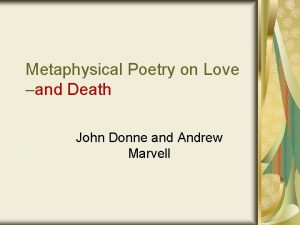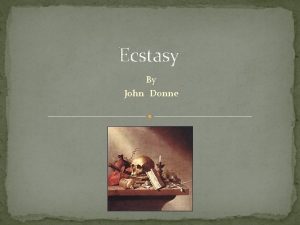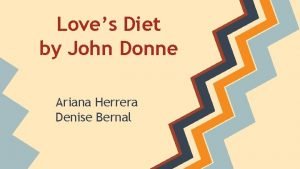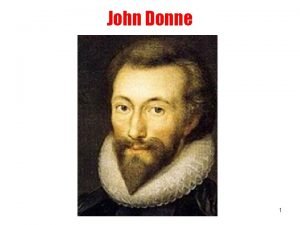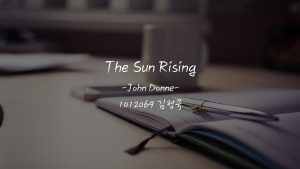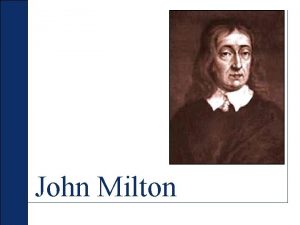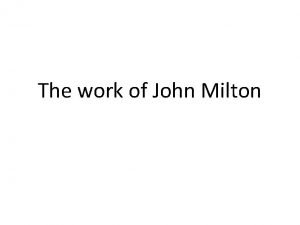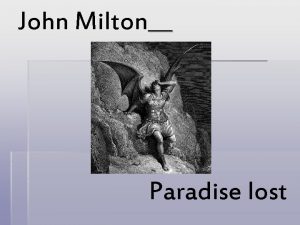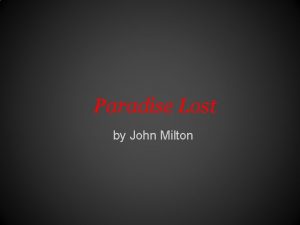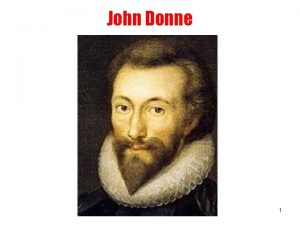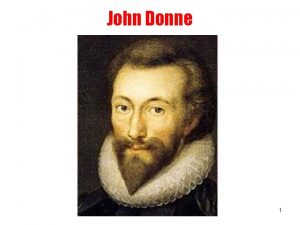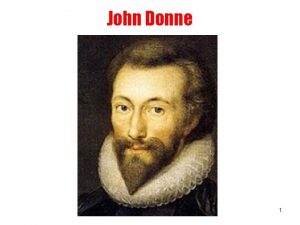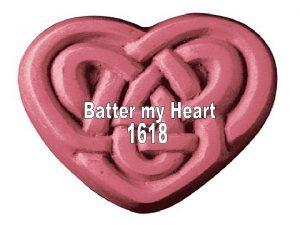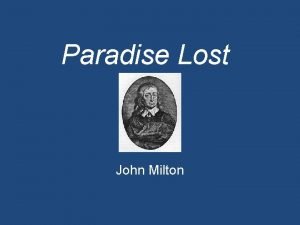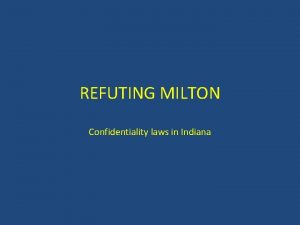Puritan Age Donne Milton Puritan Age Introduction John
















- Slides: 16

Puritan Age: Donne Milton

Puritan Age - Introduction


John Donne • He was born in London in a Catholic family. • Oxford and Cambridge, he couldn’t take his degree because of his religion • He studied law • He travelled through the Continent. • Cadiz and the Azores. • He was known at Court for his witty, cynical yet passionate love poems → Songs and Sonnets. John Donne

The Dark Years • In 1601 he secretly got married • He was dismissed from his employment and imprisoned • The Anniversary → pessimism and disillusion • Poems on the decay and falling apart of the world John Donne

The Conversion • He renounced to the Catholic Church for the Anglican Church (1615). • He became Dean of St Paul’s Cathedral in 1621. • The King’s favourite preacher. • Sermons → deep reflections on death, sin and salvation. • Holy Sonnets → distressed by the thought of his past errors. • In 1631 he delivered a memorable sermon on death → Death’s Duel. John Donne

Donne’s Metaphysical Style Donne’s poetry is characterized by wit: • a particular kind of skill with words. • the ability to create unusual, unexpected images and join them in complex chains of thought. • This style was called Metaphysical. Donne’s poems put together: • Irony; • serious reflections; • philosophical thoughts; • unexpected metaphors; John Donne

• Metaphysical poet • Third group • Main features: üSense of dissatisfaction and cofusion üThe poems were complex – difficult metaphores üInspiration from: astronomy – medicine – geognaphy ü 2 topics: love and religion

• Productive poet • 2 main themes: love and relationship God and man • Love was both psysical and spiritual • Unconvensional imagery • Strong imagination • Philosophical thoughts

Songs and Sonnets (1633) • It is a collection of love elegies and love songs. • Donne’s love is physical as well as spiritual. • The poem reflects a passionately tender attitude to love and women. • He believes that the union of the souls is stronger than that of the bodies → lovers are compared to the connected legs of a compass. John Donne





Milton

 The flea poet
The flea poet What is metaphysical poetry
What is metaphysical poetry The sun rising analysis
The sun rising analysis The legacy john donne
The legacy john donne The flea analysis
The flea analysis What is metaphysical poetry
What is metaphysical poetry John donne as a metaphysical poet
John donne as a metaphysical poet John donne mappa concettuale
John donne mappa concettuale A valediction forbidding mourning theme
A valediction forbidding mourning theme A valediction forbidding mourning themes
A valediction forbidding mourning themes Define metaphysical poetry
Define metaphysical poetry John donne ecstacy
John donne ecstacy Love's diet
Love's diet Celina medina hobbs nm
Celina medina hobbs nm John donne (1572-1631)
John donne (1572-1631) Holy sonnet 11
Holy sonnet 11 She's all states and all princes i
She's all states and all princes i

